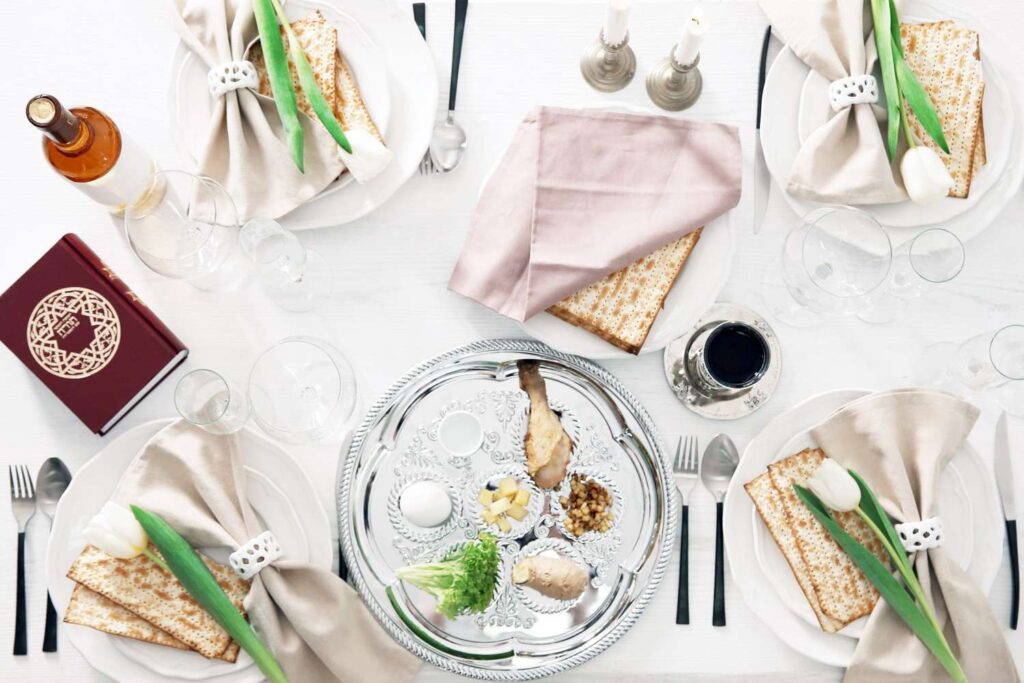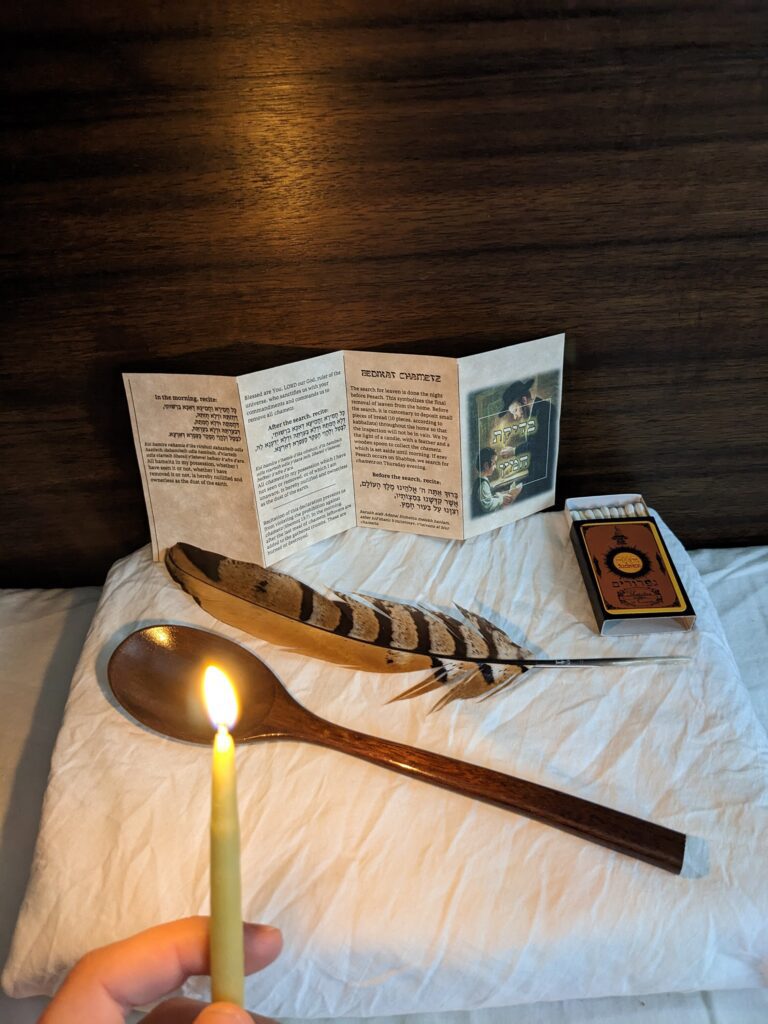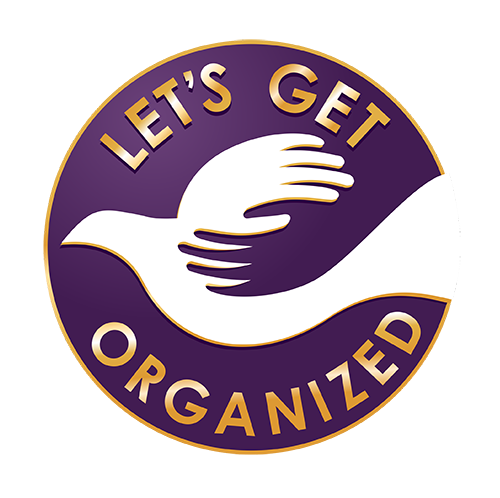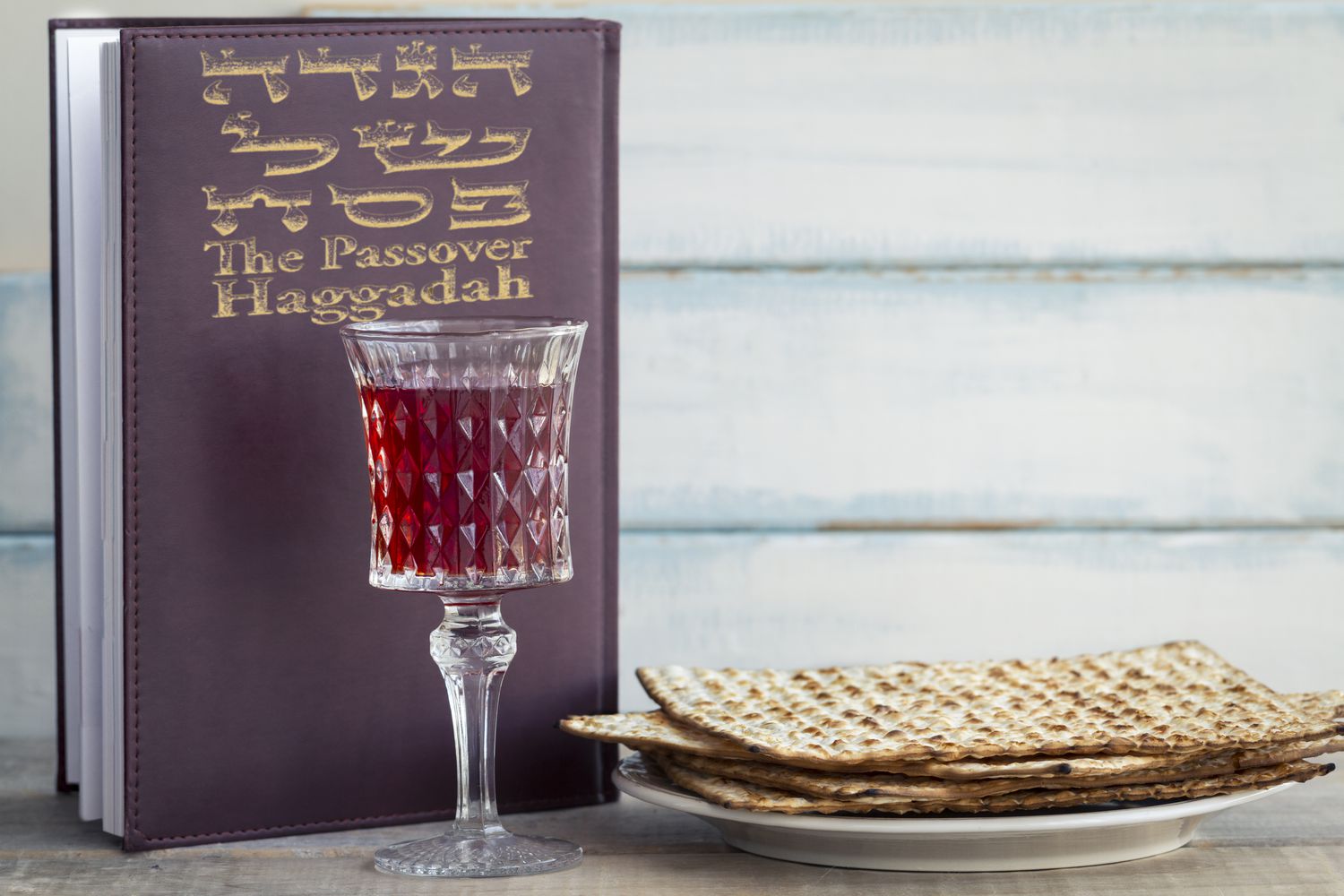“Passover Prep: Declutter and Organize
"Passover Prep:
Declutter and Organize
It’s time to prepare for Passover. In a perfect world, you’re reading this right after Purim, when you have plenty of time to get ready for the holiday. In reality, it may be the week before Passover. No worries; your secret is safe with me.
Preparing for Passover does take time and effort, but it’s not just about scrubbing floors and getting rid of chametz. There is an internal change that happens during Passover. Knowing this, keeping this change in mind when getting ready for the holiday, makes the cleaning and cooking much more meaningful.
Most of us know that Passover commemorates the Exodus from Egypt and the basic story: the Jewish people were slaves to Pharaoh for 400 years. Moses is found in the river by Pharaoh’s daughter and is raised as a prince. He is nursed by his own mother, who teaches him Jewish values as he grows up. G-d sees the suffering of the Jewish people and reveals Himself to Moses, charging him with leading the Jewish people out of Egypt. Pharaoh refuses and G-d brings plagues upon Egypt. When Pharaoh loses his son through the last plague, the smiting of the firstborn, he finally agrees to let the Jewish people go. They have to leave quickly and don’t have the time to let their dough rise into bread (chometz). So they put the dough on their backs and depart. The dough is baked into flat cakes along the way (matzah).
Chometz is leavened and inflated. It’s the bread of ego. Matzah is flat and simple. It’s the bread of humility. During Passover, we give up chametz and the inflated ego that it represents. Instead, we eat matzah and remember our ancestors, their slavery to a culture that tried to beat us down, and are reminded that the Jewish people are subservient only to G-d.
The Exodus may have happened many years ago, but it lives within every Jewish person and is a very modern story. Every one of us has our own personal “Egypt” that holds us back from being who we really are and living the life we want to live. Passover is all about liberation, not just from a physical place called “Egypt,” but from the inner thoughts, beliefs, and behaviors that hold each of us back from creating a life that fits and realizing our fullest potential. We let go of our mental, physical, and spiritual clutter, part the sea of limitation, and arrive in a land flowing with clarity and purpose.
This year, when asking, “Why is this night different from all other nights?” ask yourself what will be different about yourself this year. What are you a slave to? What will you let go of to create your own Promised Land? Email me at Hello@LGOrganized.com and let me know.
"Passover Prep Made Simple:
Your Quick Guide!
learn about the holiday
Traditionally, we are to start learning about a holiday thirty days before it begins. For Passover, this means right after Purim. Make sure you have a Haggadah that you like. There are 15 steps to a seder; familiarizing yourself with them ahead of time will make for a smooth evening.
clean the house
Dishes and Utensils
Today, most Passover-savvy homes have a special set of dishes, silverware, pots, pans and other utensils for Passover use only. If necessary, certain year-round utensils can be used—provided they are koshered for Passover. This gets rather complex—you’ll need to consult a competent rabbi about your particular utensils.
Oven and Stove
Thoroughly clean and scour every part of the oven and stove. Heat the oven to the highest temperature possible for 1–2 hours. Heat the grates and the iron parts of the stove (and the elements, if electric) until they are red-hot. It is suggested that the oven and the stove top should be covered with aluminum foil afterwards for the duration of Passover. A self-cleaning oven should be run though a full cleaning cycle and may then be used (but no hot Passover foods or dishes should be placed on the glass door).
Microwave Ovens
Clean the oven thoroughly. Fill a completely clean container, which was not used for 24 hours, with water. Turn on the microwave and let it steam heavily. Turn it off and wipe out the inside. To use the microwave during Passover, use a flat, thick, microwave-safe object as a separation between the bottom of the oven and the cooking dish. When cooking or warming, the food should be covered on all sides.
Sink
For 24 hours before koshering the sink, do not pour hot water from chametz pots into it. Meticulously clean the sink, boil water in a clean pot, which was not used for 24 hours, and pour three times onto every part of the sink, including the drain stopper. Then line the sink with foil or liner.
Refrigerator, Freezer, Cabinets, Closets, Tables, and Counters
Thoroughly clean and scrub them to remove any crumbs and residue. Afterwards, place a heavy covering over those surfaces that come into contact with hot food or utensils.
Tablecloths and Napkins
Launder without starch.
Other places to clean: Cars, Garages, etc.
Vacuum your car or van; thoroughly clean your basement, garage, or any property you own. Special care should be taken with items you will be using, or rooms you will be accessing, during Passover.
Source: https://www.chabad.org/holidays/passover/pesach_cdo/aid/1745/jewish/Preparing-the-Kitchen.htm
PLAN YOUR SEDERS AND MEALS FOR THE WEEK
Knowing your seder plans well ahead of time and creating a list of meals for the rest of the holiday can save a great deal of time, money, and stress. Take a few minutes on a Sunday, a few weeks before the holiday, and plot out where you’re going for each seder, what you’ll serve if you’re hosting and what you’ll bring if you aren’t, and what you want to have in the house for the interim days.
I know what you’re going to say: “How do I know now what I’m going to want then?” My answer: Write down the things you like to eat throughout the year. Highlight what is kosher for Passover. Make menus using those items. I suggest keeping it simple and fresh; be mindful of any allergies. Voila! Now you’ll have on hand dishes that you already like, so you can mix and match each day.

If you’re hosting a seder, you’re going to need
- A seder plate or plates
- Matzah – three whole ones for each seder plate for each seder, plus two for every other participant per seder
- Matzah cover/Afikoman bags
- Wine or grape juice
- Bitter herbs
- Charoset
- Roasted shank bone
- Egg
- Karpas
- Candles
- Extra chairs
Make a list of the ingredients needed for your menus, then…
GO PASSOVER SHOPPING
Make sure whatever you buy is clearly kosher for Passover. Fruits, vegetables, eggs, meat, and fish are usually kosher for Passover. Many dairy products are as well. Just be sure to check fruits and vegetables for bugs, eggs for blood, and that you aren’t mixing milk with meat! You’ll also want to stock up on aluminum foil and baking pans.
BUY SHMURAH MATZAH
Shmurah means “watched.” This handmade matzah is closely monitored from beginning to end to make sure it doesn’t rise and become chametz.
start cooking
Give yourself extra time to prepare meals by doing the Passover cleaning early. Those foil pans will come in handy now!
SELL YOUR CHAMETZ
do the final search for chametz

This is done the night before Passover will begin. Take a candle, feather, wooden spoon, and paper bag. Say the blessing:
Blessed are You, L-rd our Gd, King of the universe, who has sanctified us by His commandments, and has commanded us concerning the removal of chametz.
Search for chametz, gathering anything found into the paper bag. Nullify anything you might have missed. Burn the crumbs in a fire the next day, before Passover begins.
enjoy the holiday!
If you’re hosting, set the table, prepare the seder plate(s), and warm the food. Whether you’re hosting or not, take a nice shower and get dressed. I like to put on a new outfit for the first seder, to make the holiday extra special.
alphabetical cleaning checklist
The following is a checklist of all areas that must be searched well and thoroughly cleaned from all traces of chametz
- Attic
- Arts & Crafts
- Basement
- Bedroom
- Bed
- Bed Frame
- Behind Furniture
- Books
- Breadbox
- Briefcase
- Buffet
- Candlesticks
- Carpets
- Car
- Car Seats
- Carriage
- Chairs
- China Closet
- Closets
- Clothing
- Coats
- Coat Closet
- Computer And Keyboard
- Cosmetics
- Couch
- Crib
- Desks And Drawers
- Dining Room
- Dishwasher
- Dresser And Drawer
- Entertainment Center
- Exercise Equipment
- Floors And Carpets
- Freezer
- Furniture
- Garage
- Garbage Cans
- High Chairs
- Kitchen
- Kitchen Appliances
- Lamps
- Laundry Hamper
- Linen Closet
- Living Room
- Luggage
- Lunch Boxes
- Medicine Cabinet
- Office Or Workspace
- Oven
- Pet Cages
- Playpen
- Playroom
- Pockets
- Pocketbook
- Porch
- Radiator
- Recreation Room
- Recliner
- Refrigerator
- Rings
- School Bags
- School Lockers
- Sewing Box
- Shopping Cart
- Sink
- Staircase
- Storage Room
- Stove
- Stovetop
- Stroller
- Table
- Telephone
- Toys
- Utility Drawers
- Vacuum Cleaner
- Wallets
- Washing Machine / Dryer
- Windowsills
- Woodwork
- Yard
room-by-room checklist
- Dining Room
- Front Room
- Dinette
- Vestibule
- Study
- Library
- Den, Playroom, Recreation Room
- Kitchen
- Laundry Room
- Master Bedroom
- Children’s Bedrooms
- Guest Room
- Nursery
- Bathroom
- Adjacent Living Areas
- Attic
- Basement
- Car
- Garage
- Hallways
- Office
- Porch, Deck Or Terrace
- Staircases
- Storage Rooms
wishing you a
Zissen Pesach!

author
Gayle M. Gruenberg
Gayle M. Gruenberg, CPO-CD® is the Chief Executive Organizer of Let’s Get Organized, LLC, an award-winning professional organizing firm based in Bergen County, New Jersey. Gayle is the creator of the Make Space for Blessings™ system. LGO works with busy families to help them find more time, space, money, and energy and connect their lives to their core values through being organized.

